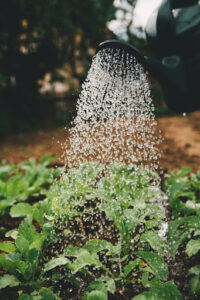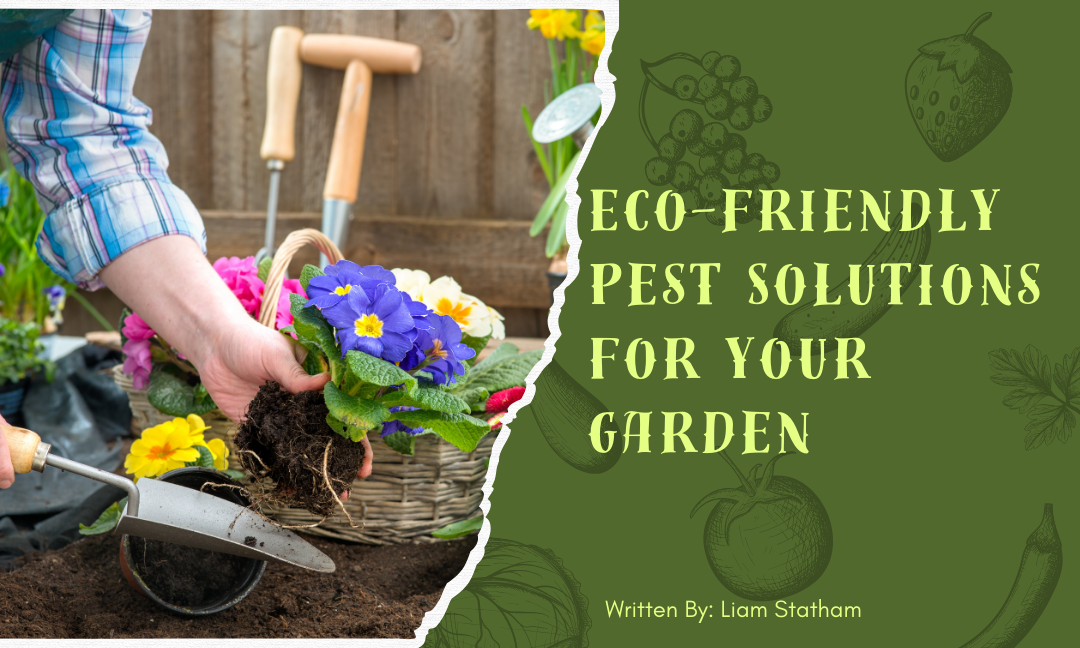Written by Liam Statham
Edited by Kiritika Rana
Designed by Eshika Hiremath
Published by Kiritika Rana
Most of us have felt the heartbreak of tending to a plant for months only to check on it one day and see it destroyed by pests. While your first reaction to learning that there are uninvited pests in your garden might be to call a local pest control company, this may not be the best option. Most of these companies use harsh pesticides that can cause harm to other plants in your garden, pets, children, and the atmosphere. Instead, opting to use more eco-friendly methods can be much more convenient and safe. In this article, I’ll be sharing some of these methods with you!
First Steps When You Spot a Pest in Your Garden:
Before reaching for pesticide spray or any of the methods in this article, you should first research the pest you see. By typing in a description of the pest and the general region of where you live on Google, you should be able to find some useful information about it. Sometimes the “pest” that you think is destroying your garden is a beneficial insect. If it does turn out to be a pest, you can learn helpful things about it like what plants it eats, how long it lives, and how much damage it can cause. If you’ve done your research and it is a harmful pest, try out these eco-friendly methods to address it:
 Method #1: Plant Pest-Control Herbs
Method #1: Plant Pest-Control Herbs
Herbs like mint, lavender, and basil are great at deterring pests that you don’t want. Basil, for example, deters mosquitoes, whiteflies, flea beetles, and much more. These plants can also work great in lots of meals and drinks!
Method #2: Use Food Waste as Insect Repellent
Citrus peels contain D-limonene, an effective insect repellent that is a part of many commercial insect repellents! Adding these peels to your garden soil as fertilizer can be an effective way to ward off pests. Onions can be used similarly, as they contain allyl-epropyl-disulfide, another useful insect repellent.

Method #3: Use Humane Traps to Relocate Rodents
“Humane traps” are devices that capture rodents which you can then free away from your garden. Using these traps is another way to ensure that no creature is harmed during your pest-control process.
Method #4: Use Natural Pesticides
If you have tried other methods yet couldn’t solve your pest problem, natural pesticides are a good option. Sprays like pyrethrum are biodegradable and safe for humans and have been used for hundreds of years. They contain a collection of naturally produced chemicals that are toxic to insect nervous systems.
Hopefully, this article has given you some eco-friendly ideas to solve any pest problems that may come up. This gardening season, let’s protect not only our gardens but our environment as well.
Resources
https://www.thespruce.com/pyrethrin-insecticide-definition-1902891
Photo by Markus Spiske on Unsplash
Photo by Dimitri Iakymuk on Unsplash

